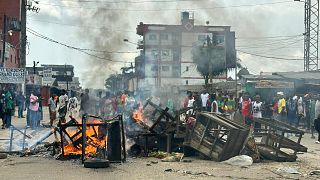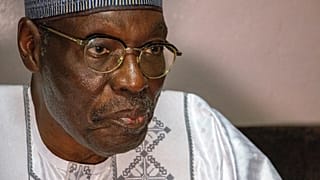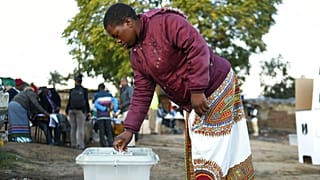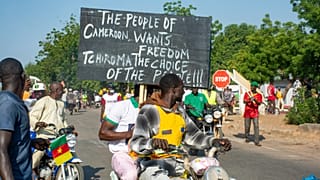Cameroon
Cameroon’s Constitutional Council on Monday declared long-serving President Paul Biya the winner of the country’s October 12 presidential election, extending his rule that has spanned more than four decades.
“Candidate Paul Biya is hereby declared elected President of the Republic, having obtained the majority of votes cast,” announced Clément Atangana, President of the Constitutional Council, in Yaoundé.
According to official figures, Biya secured 53.66 percent of the vote, defeating his former ally turned challenger Issa Tchiroma Bakary, who received 35.19 percent. The council said voter turnout stood at 57.7 percent.
Protests Turn Deadly
The announcement came a day after violent clashes erupted in several cities. In the economic capital Douala, security forces opened fire on demonstrators protesting alleged electoral fraud, leaving at least four people dead, according to local reports.
In the northern city of Garoua, opposition supporters also took to the streets. On social media, Tchiroma accused security forces of firing on civilians, claiming two people were killed in his hometown.
“Shooting point-blank at your own brothers — I can’t help but wonder if you’re mercenaries,” Tchiroma wrote on X, formerly Twitter. “Kill me if you want, but I will liberate this country by any means necessary. What blatant impunity.”
Authorities have not commented on the allegations, but human rights observers expressed concern over the government’s heavy-handed response to protests.
Disputed Victory
Tchiroma had already declared victory days before the official results were released, citing what he described as tallies compiled by his campaign. His claims were quickly dismissed by ruling party officials as “baseless and inflammatory.”
Despite widespread frustration among younger voters and calls for political renewal, Biya’s Cameroon People’s Democratic Movement (CPDM) maintains a firm grip on power through a network of loyal governors, regional administrators, and security forces.
Election Irregularities and Observations
The government said more than 5,000 national and international observers were accredited to monitor the poll.
However, a coalition of eight Cameroonian civil society organizations reported irregularities, including deceased names still appearing on voter rolls, unequal distribution of ballot papers, and incidents of ballot box stuffing in some constituencies.
In contrast, the African Union observer mission praised the election, saying it was “conducted largely in accordance with regional, continental and international standards,” though it noted logistical and transparency challenges in parts of the country.
Biya’s Enduring Grip on Power
At 92 years old, Paul Biya is the world’s oldest head of state and one of Africa’s longest-serving leaders. He first assumed office in 1982 following the resignation of Cameroon’s first president, Ahmadou Ahidjo, and has since consolidated control through constitutional changes that abolished presidential term limits.
His tenure has been marked by a mix of stability and repression. While Cameroon has avoided the coups that have unseated leaders elsewhere in Africa, Biya’s rule has faced growing discontent over corruption, inequality, and the government’s handling of the Anglophone crisis in the country’s northwest and southwest regions.
Biya’s health and frequent absences have also been the subject of speculation, as he spends extended periods in Europe, particularly Switzerland, leaving governance in the hands of close aides and family members.
A Nation at a Crossroads
Analysts say Biya’s latest victory underscores both his enduring political machinery and the weakness of the opposition, fragmented across ideological and regional lines.
“Paul Biya remains a master of political survival,” said one Yaoundé-based political scientist. “But this election also shows that public patience is wearing thin, especially among younger Cameroonians who feel excluded from political and economic life.”
As the dust settles, many in Cameroon are left questioning whether this election marks continuity or crisis — and whether the aging leader can still steer the Central African nation through its deepening challenges.











11:17
Eco-charcoal gains traction as a cleaner, cheaper alternative to firewood {Business Africa}
00:09
Republic of Congo presidential election set for March 15
01:09
Uganda's military chief gives opposition leader 48 hours to surrender to police
00:24
'Opposition was lucky,' Ugandan President Museveni says after securing seventh term
02:01
Tension grips Kampala as Museveni leads and residents await election results
01:32
With polls closed, vote counts are underway in Uganda presidential election